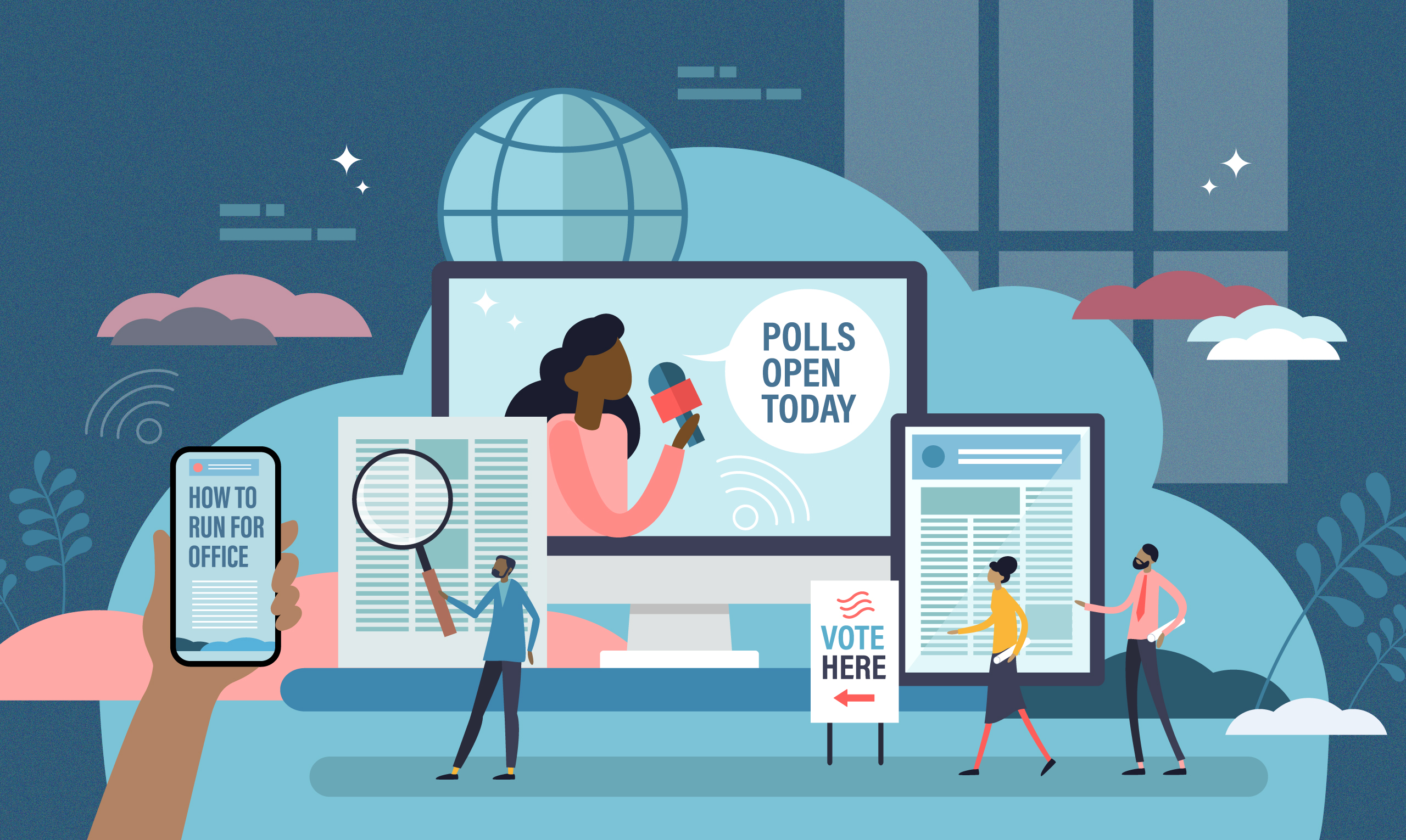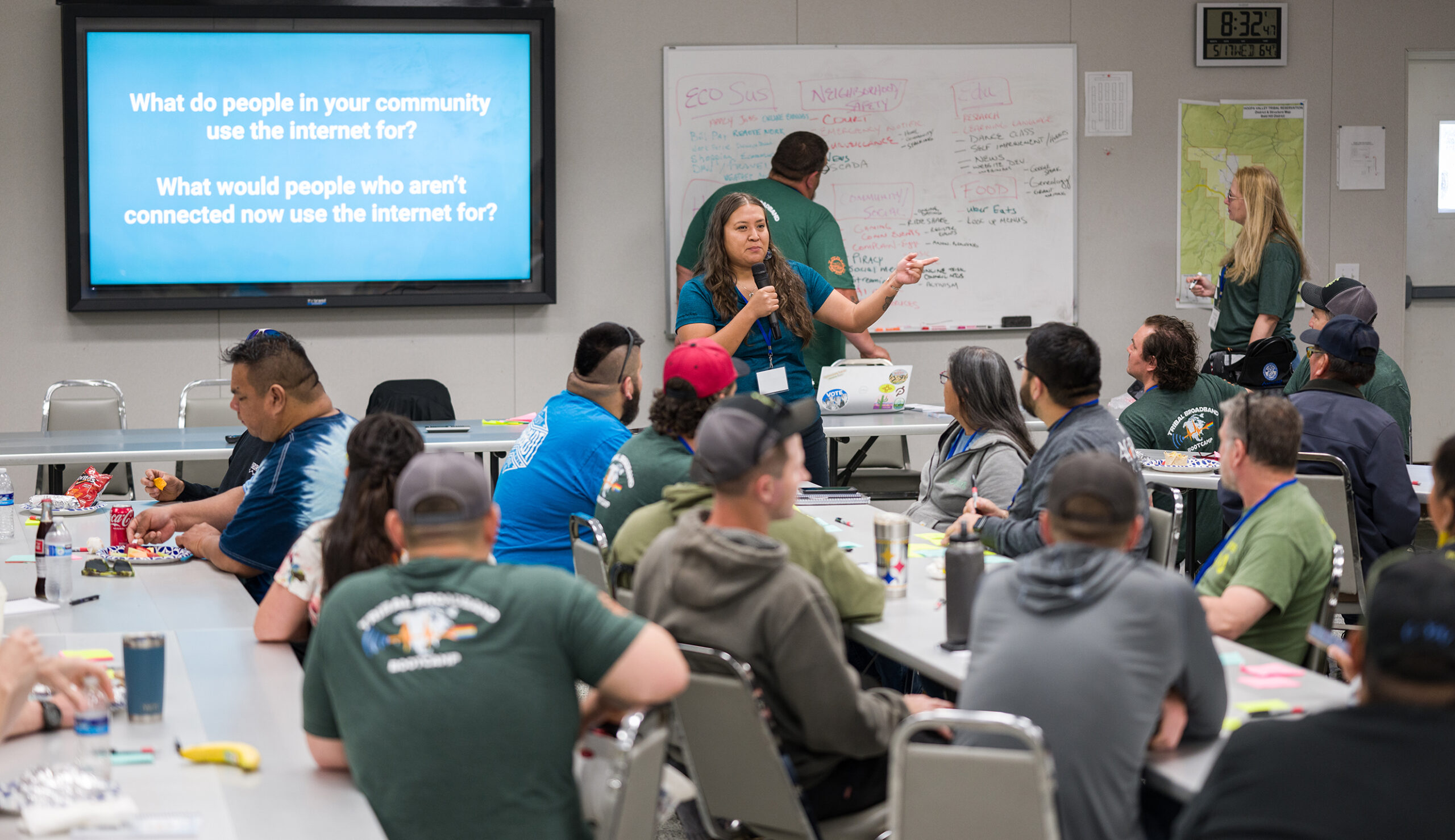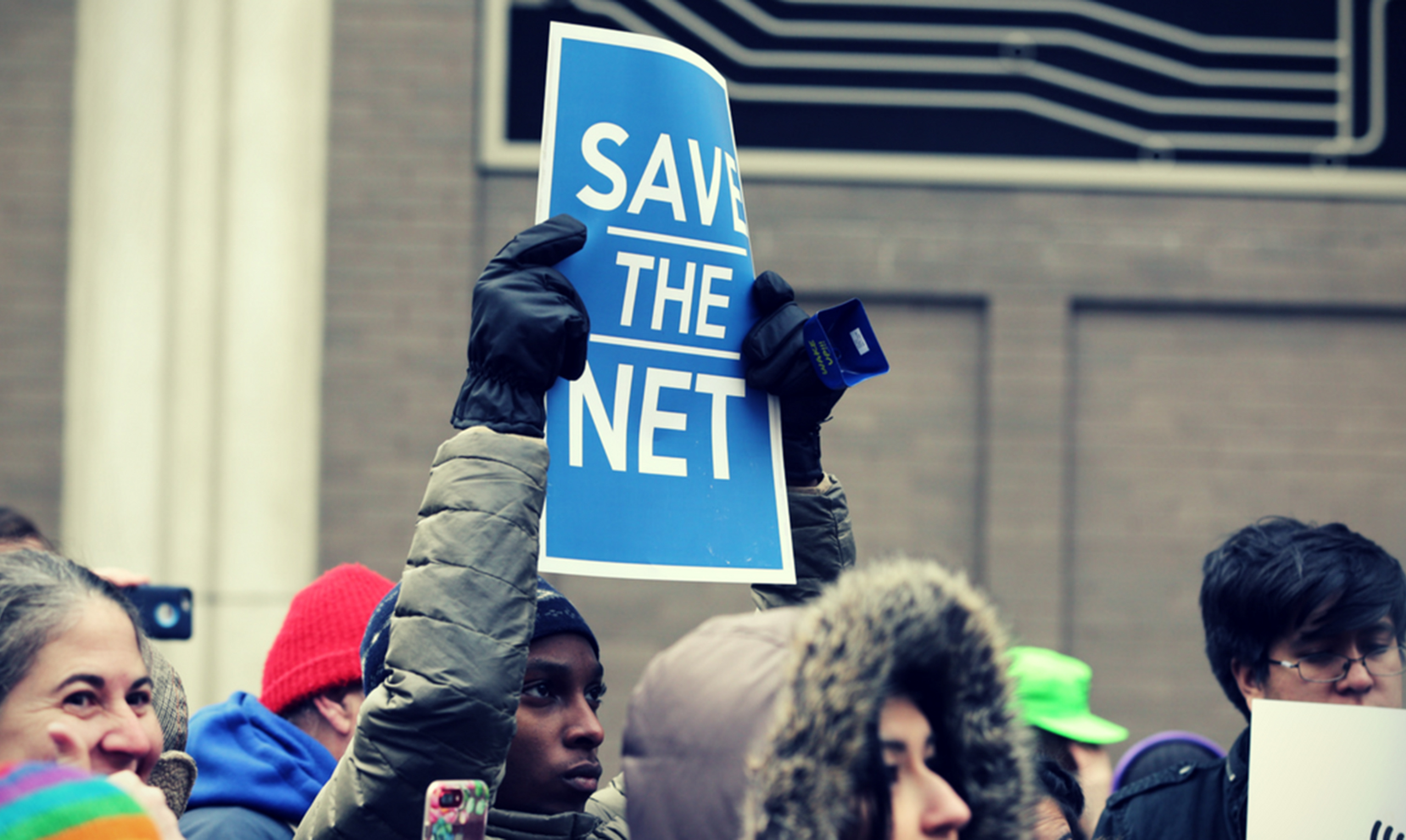In 2020, our Digital Democracy portfolio (DDP) wanted to find a way to learn more about our grantees’ challenges while also being mindful of their limited time during a turbulent year. We decided to hold learning conversations with our grantees instead of commissioning formal evaluations, so that we could quickly extend support. Our learning and evaluation partner, ORS Impact, led these conversations by hosting 90-minute small group discussions with grantees, focusing on their work ensuring tech, telecom and media serves communities of color, trends they were seeing across the digital rights movement, and challenges they faced. After a couple of iterations of these yearly learning conversations, we adapted them to count as narrative grant reports, providing the option to replace the traditional, often time-consuming annual narrative reports written by each DDP grantee.
ORS Impact currently conducts these sessions on an annual basis and prepares a final report, which we submit internally to meet the grant reporting requirement. This method of reporting and evaluation is an efficient way to get all the information we need to explore how grantees’ actions lead to outcomes in the aggregate. It also helps us adjust our strategies and activities to best support grantees and the field. Note: Initially, Democracy Fund staff attended the small group sessions. We no longer participate in the sessions because we know our presence creates power imbalances and may alter results.
This new method is just one way that Democracy Fund is experimenting with different forms of reporting that are inclusive, add value to the field, and embrace complexity (tenets of our Strategy, Impact and Learning values).
While the learning cohorts are a unique practice of DDP, Democracy Fund has been using other forms of reporting, like one-on-one verbal reporting, in addition to traditional narrative reports. Most Democracy Fund grantees have the choice between verbal reports or narrative reports, which so far, caters to each grantee’s preferences and reduces the burden on their time and energy.
What we’ve learned from this new model
Over the past four years of experimenting with this method of reporting, DDP grantees have had in-depth discussions on topics ranging from field infrastructure, coordination and networks, and strategies connecting research and advocacy. We have been able to learn a lot from our grantees on these topics, with a richness of findings that is only possible through group conversations.
The small group dynamic has many advantages:
- Facilitating real-time learning for us and our grantees. This allows us to spot more connections and patterns across our portfolio, which a traditional one-off narrative report doesn’t do.
- Ensuring our grantees have access to the same learnings we do. We share the final report back to grantees and share it with other partners, making our learnings known to the field.
- Building relationships and more coordination between grantees.
- Reducing grantees’ time spent on reporting.
Most importantly, this approach de-centers the funder and ensures that learning isn’t happening in a vacuum.
There two disadvantages worth noting:
- Unlike with written grant reports, the findings from group discussions are aggregated and anonymous so there is less specificity and consistency year over year.
- This method, along with verbal reporting, caters to verbal processors, and not everyone prefers learning this way.
Because of our learning philosophy to embrace complexity and conduct learning activities that are inclusive and add value to the field, these disadvantages do not outweigh the benefits of this reporting method. We value our grantees’ time and expertise, and strive to help build more opportunities for coordination.
What we learned from DDP grantees in 2024
This year’s findings have produced valuable insights for the DDP team and our grantees. We asked our grantees about field coordination, philanthropy’s impact on the field, infrastructure support, and how to support local organizing work. These topics, among others, were best discussed without Democracy Fund in the room, to promote candor and provide a safe space. The grantees raised that funder-driven shifts create disruption, loss of strategic agency, and competition and instability. When shifts happen, funders should provide transparency and transition support, and connections to other funders.
Another finding worth noting from this year’s conversations was about supporting local organizing. Our grantees who do local organizing around tech justice talked about the importance of trusted relationships between organizations, community visioning processes, and national policy organizations taking direction from community organizing. The grantees were able to riff on each other’s ideas, and find commonalities across locales. This discussion was less likely to have been as rich or honest if it had happened in a one-on-one conversation.
More findings from the 2024 learning cohorts, such as what grantees surfaced as infrastructure needs and inhibitors to local organizing can be found in our 2024 summary report.
Funders need to consider the impact of their reporting models
As trust-based philanthropy takes hold across the field, more and more funders are looking for methods to learn alongside their grantees and track changes within the field without creating an overwhelming burden on grantees. As a result of Democracy Fund’s recent Grantee Perception Survey, we are committed to finding more ways to share what we are learning. We encourage other funders to do the same, and avoid reporting requirements that put funders’ needs above those of grantees.
Here are some resources, organizations, and individuals that informed shifts in our internal reporting requirements:
- Grant Reporting Resources – Trust Based Philanthropy
- Simplifying Grant Applications and Reporting for Nonprofits – Exponent Philanthropy
- Modern Grantmaking: A Guide for Funders Who Believe Better Is Possible
- Answers on grant reports if nonprofits were brutally honest with funders
- Pia Infante, our longtime collaborator
- Borealis Philanthropy
Please reach out to learn more about Democracy Fund’s learning processes.





